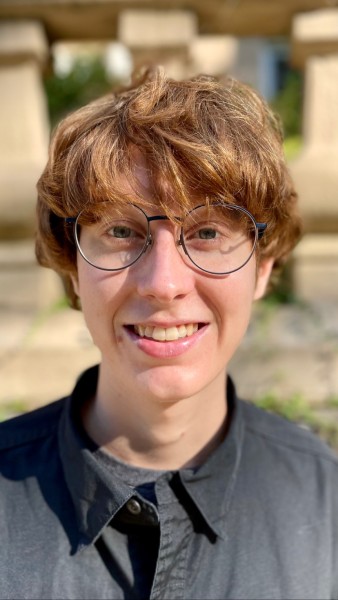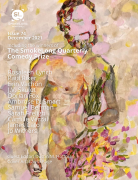“In Lieu of Closure” is a very timely story, addressing the emergence and prevalence of conspiracy theories in our society, and the faults of our justice system. Can you speak a little about how this story came about, and the choices you made in telling it?
This was one of those rare stories that felt like it wrote itself. The idea came to me at around midnight when I was trying to sleep. It kept nagging me, keeping me awake, and I soon realized that I wouldn’t be able to sleep until I wrote it. I’d recently read Don DeLillo’s Libra, so I had JFK conspiracies on my mind. I’d been thinking a lot about the mental processes that lead to conspiratorial thinking, and that’s when I considered it as a possible response to trauma. I made the protagonist a fourteen-year-old boy, because I felt telling this story through the eyes of an adult character would come across as preachy. Kids tend not to have agendas—they just respond to what’s in front of them, often in strange and unpredictable ways.
You tackle the questions of what is true, what is not, how we tell the difference, and why it matters. We read of Lawrence that “[h]e was determined to get to the bottom of it—to discover the real truth, whatever that was. There was a bit of truth to all of it, though—that was the problem.” What do you see as the possibilities and/or obstacles to discovering truth?
I think one of the biggest obstacles to finding truth in our modern American society is increasing political polarization, which leads to bias. News sources, where we’re supposed to get factual, unbiased information, are frequently slanted or outright fallacious in their reporting. It’s easy to see how this gives rise to conspiratorial thinking—people figure that because the official narratives can’t all be true, they must all be false. I’m not sure a discovery of “absolute truth” is ever really possible, because events and experiences are always being filtered through our skewed and unreliable human minds. That’s one reason I’m so interested in metafiction and postmodern literature—I like the way these genres draw attention to the idea that a story is always being told by someone—that reality doesn’t have some objective, infallible, invisible narrator. In my own life, I seek truth (or as close an approximation of it I can reach) by reading as widely and voraciously as possible. I rarely come across a text that doesn’t have something insightful to say—something that rings “true.”
The wording of the title does not show up in the story itself, but presumably closure is what Lawrence is reaching for. What is your feeling about closure? Is it necessary? Is it possible?
My use of the word “closure” in the title is twofold. It refers to Lawrence’s search for closure in the wake of his father’s death, as you mentioned, but it’s also a reference to the pro-capital punishment argument that the death penalty provides “closure” to the families of victims. I wanted to put a spin on that notion by dramatizing the lack of closure felt by the loved ones of executed convicts—a feeling of uncertainty that is complicated by the fallibility of the justice system, which still suffers from racial and class biases. Capital punishment is a definite solution to an indefinite problem.
The OED defines closure as “a feeling that an emotional or traumatic experience has been resolved.” In that sense, I’m not sure it’s ever truly possible. Time helps alleviate grief, but it doesn’t provide a “resolution,” especially when the traumatic event in question is something as permanent as death.
A lot of the story describes Lawrence’s experience in school, and the ways he is different from his Nebraska schoolmates: new kid in school, biracial, son of a man who was executed. Did you ever feel “different” in school?
Feeling different has always defined my school experiences. I moved around a lot growing up, and by the age of 12, I’d already lived in four different places on three different continents. When we finally did settle down, it was in a religious, conservative small town, and I’m neither of those things, and growing up, I was ridiculed for my social awkwardness and my gender nonconformity. Like Lawrence, I tried to preemptively define myself by whatever passion I was currently embroiled in. In elementary school, it was Star Wars and chess. In middle school, it was Rubik’s Cubes—people used to bring me their years-old, mixed-up cubes and I’d solve them all before class (which may be another type of closure-seeking behavior, now that I think of it. Is it the lack of closure that makes people feel so annoyed by an unsolved Rubik’s cube that’s been sitting on their desk since 2004?). In high school, it was music—specifically the Beatles, and then later Pink Floyd and Radiohead (though I’ve since expanded my tastes beyond the turn of the twenty-first century).
What (if any) conspiracy theory do you suspect may be true?
There’s one very niche one about the oldest woman of all time, a French lady named Jeanne Calment. She apparently lived to whopping 122 years old. According to official records, her daughter Yvonne died in the 1930s, but conspiracy theorists believe that it was actually Jeanne who died in the 30s and that Yvonne assumed her identity to avoid the exorbitant French inheritance tax. This would still make Yvonne very old when she eventually died—nearly 100—but nowhere near the oldest person to have ever lived. There are photos from around the time Yvonne allegedly died that have been labeled as being Yvonne in some textbooks and Jeanne in others, and people have done facial analyses of the old “Jeanne” and found more similarities to the young Yvonne than the young Jeanne. I’m not sure I wholeheartedly believe in this theory, but I certainly find it compelling.



 The core workshop of SmokeLong Fitness is all in writing, so you can take part from anywhere at anytime. We are excited about creating a supportive, consistent and structured environment for flash writers to work on their craft in a community. We are thrilled and proud to say that our workshop participants have won, placed, or been listed in every major flash competition. Community works.
The core workshop of SmokeLong Fitness is all in writing, so you can take part from anywhere at anytime. We are excited about creating a supportive, consistent and structured environment for flash writers to work on their craft in a community. We are thrilled and proud to say that our workshop participants have won, placed, or been listed in every major flash competition. Community works.